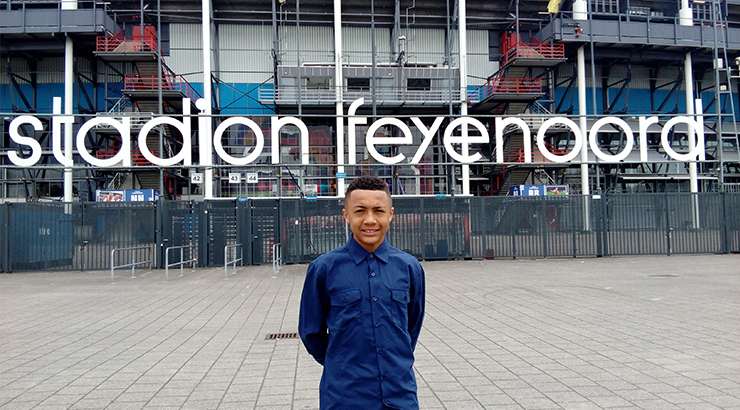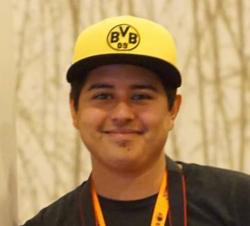Player To Watch: American Youth Lateef Omidiji Jr. Takes His Talents to Feyenoord
In our latest feature on Feyenoord Rotterdam, SoccerToday highlights Las Vegas native Lateef Omidiji Jr. who signed with the club’s U15 academy team in recent months. A member of the U.S. U14 Boy’s National Team, Omidiji received interest from English clubs Arsenal, Chelsea and Liverpool prior to his move to Feyenoord.

The American prospect continues to thrive since arriving in the Netherlands in 2015 as we discuss the aspects he has learned and his goals for the future.
Related Article: Feyenoord Rotterdam on the Importance of Coaching Education
Youth Soccer News: Feyenoord Rotterdam of the Netherlands is enjoying summer as exciting days are ahead for the club that is set to make its return to the highest stage in European football.
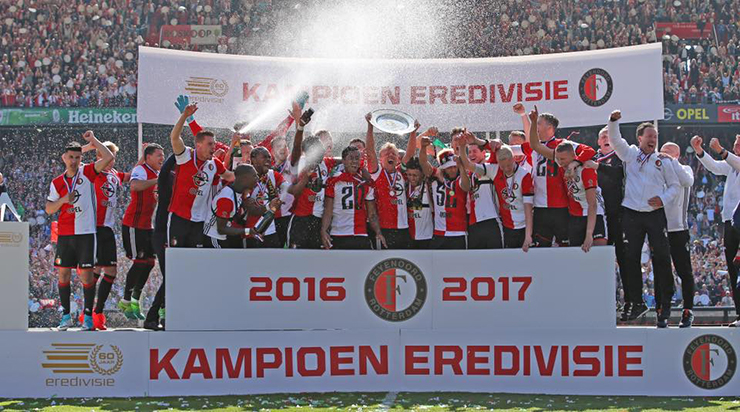
Celebrating the club’s first Eredivisie (Dutch league) title in 18 years, UEFA Champions League football will be returning to Rotterdam during the 2017/18 campaign. Dirk Kuyt led Feyenoord with a hat-trick performance in the last fixture of the 2016/17 season to hoist the title during the final match of his football career.
In our latest feature on the Dutch club, SoccerToday highlights a 13-year-old American-born youth player who has signed with the U15 Feyenoord Academy team.
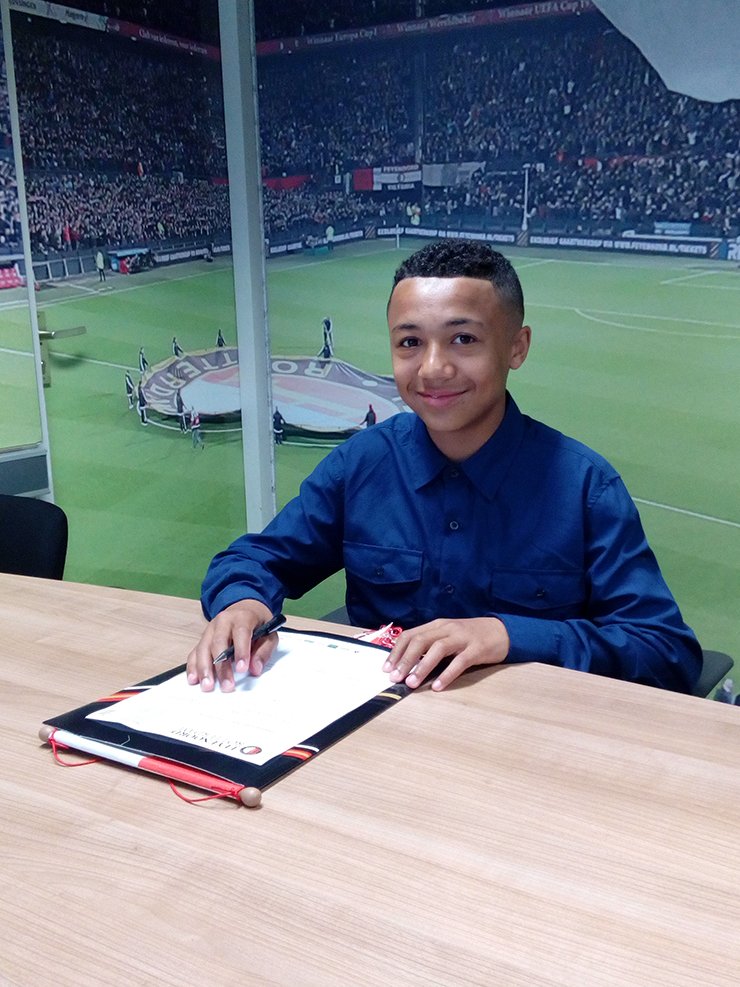
A native of Las Vegas, Nevada, Lateef Omidiji Jr. moved to the Netherlands with his parents in 2015 and has continued to shine abroad. Following his family’s move to Breda, NL, Omidiji began his Dutch playing career with FC Dordrecht, a first division club at the men’s level when they arrived. Although Omidiji found himself quickly lacing up his boots as he settled in, the transition was a process that took adjusting to on the field as well as off.
“It was very different coming from a 24-hour town in Las Vegas to a laid-back country,” said Omidiji. “The Netherlands is completely different – sights, bicycles are everywhere, lots of water, windmills – the country is very green. Dutch are happy, friendly people.”
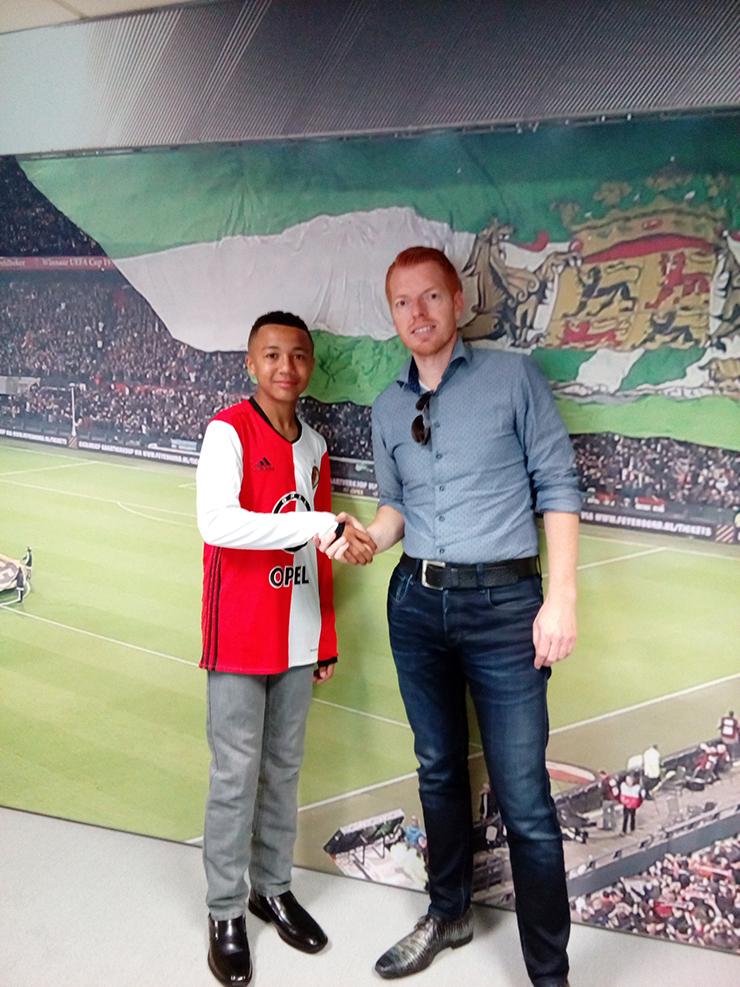
Living abroad for the first time is a very complex experience to describe. Colors shine brighter, traffic seems to be moving at a different pace, while the world seems more immense than you previously imagined.
The culture shock a person experiences may be overwhelming for some; however, the ability to recognize these differences can bring about greater knowledge of your own personal background and heritage.
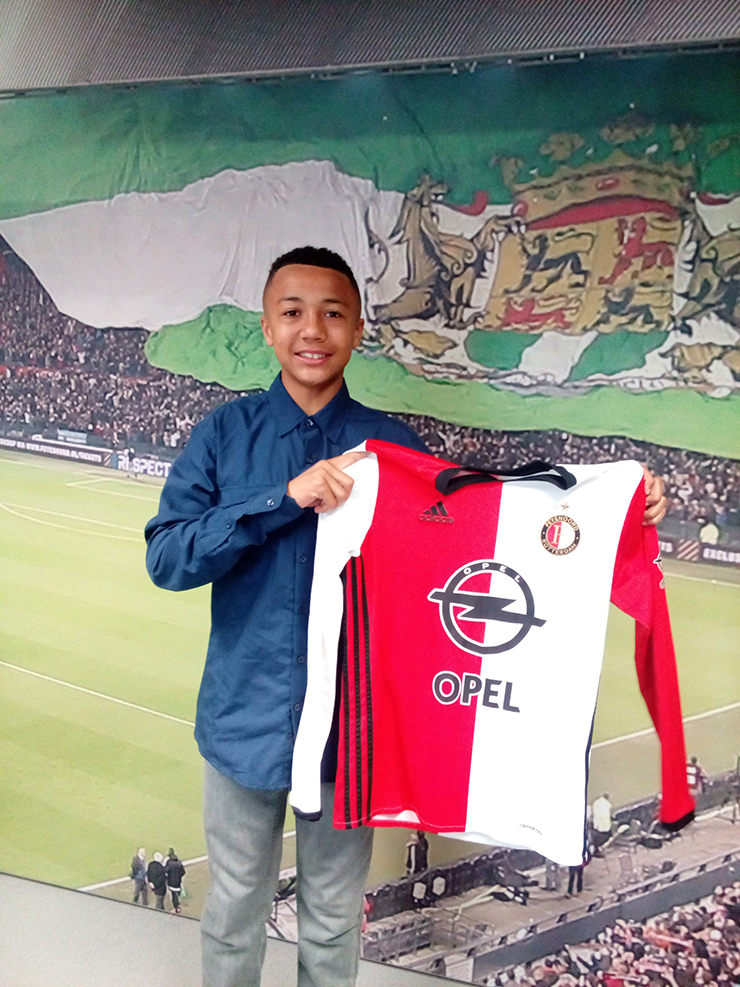
With guidance from his parents, Omidiji was able to maintain focus on embracing Dutch culture in order to enhance his overall development as a player and person.
“I made learning Dutch a priority,” said Omidiji.
I was fluent in 3 months and can now read, speak and write natively today. It made the transition much easier.”
Upon arrival, Lateef Omidiji Sr. emphasized to his son the importance of holding on to his different cultural backgrounds during this transition. This allowed for Omidiji to take in the culture and language as he adapted his American mentality as well as his Nigerian heritage.
“I told him to remember who he is,” said Omidiji Sr. “Then combine that with what they are teaching. I explained that he shouldn’t lose sight of what he does best because that may be why they wanted him in the first place. Then to learn and be himself!”
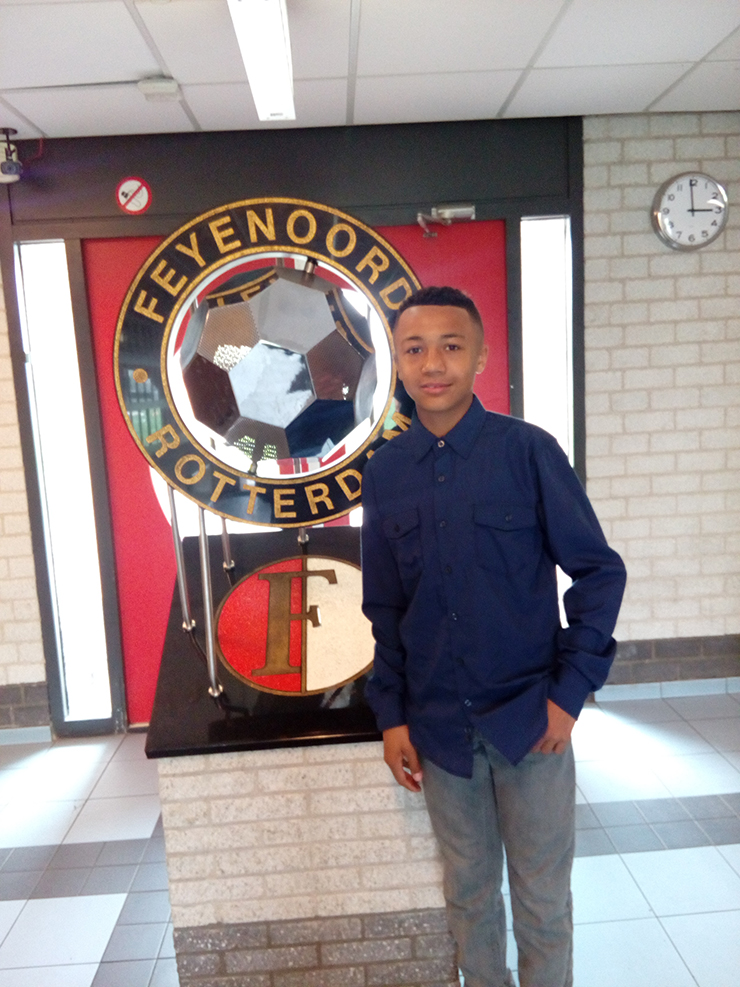
With top European clubs attracting talent at the peak of their career, Feyenoord remains grounded in developing players that may suit up for the first team in the future.
Youth development in the Netherlands provides a strict outline of the necessary steps to be taken by a player. As individuals hold on to the core principles of their education, they are given the opportunity to embrace playing without specific guidance from their coaches.
Ultimately, Feyenoord seeks to develop independent thinkers that are able to make their own decisions on the pitch.
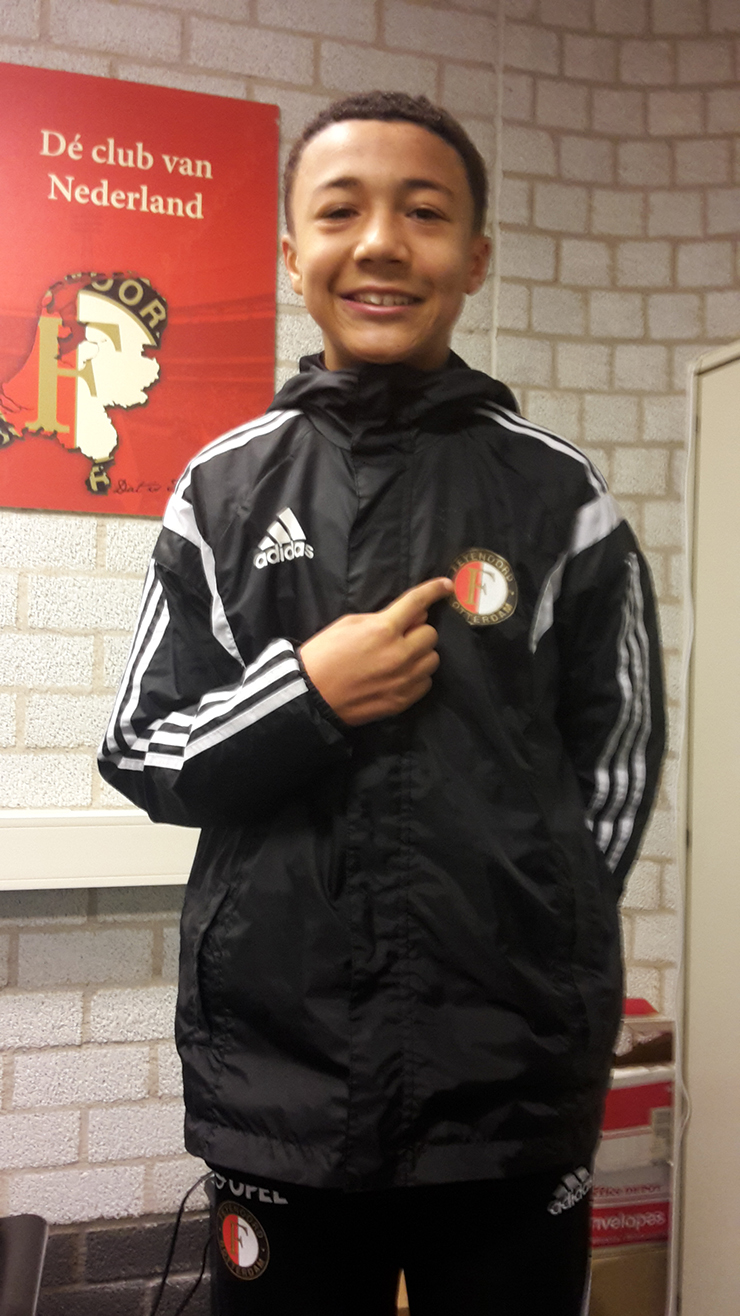
During Omidiji’s recruitment, Feyenoord broke down certain aspects of Dutch player development and the importance of establishing mental speed first rather than physical speed.
If a player is thinking to run before he knows where he has to be, physical speed is not going to matter,” said Omidiji Sr.
Furthermore, Dutch player development focuses on off-the-ball movement and decision-making, which transitions to possession-based football of the Netherlands.
Omidiji highlights the different role a coach plays in the United States versus the Netherlands, with the latter providing more freedom on the field.
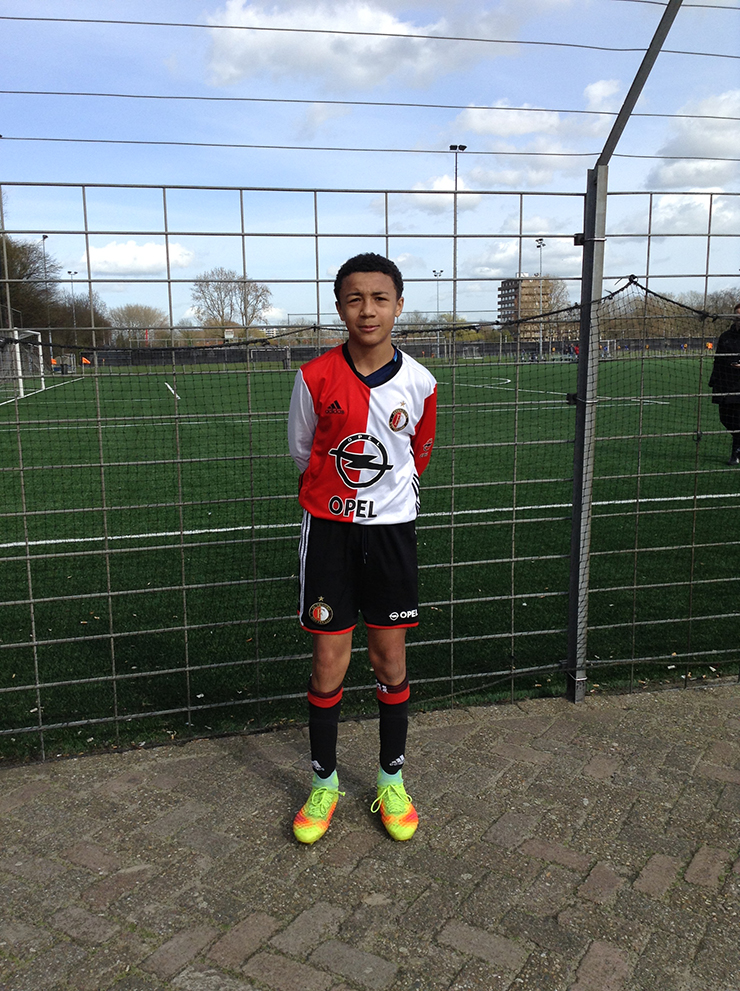
“On the sideline the coach doesn’t dictate your every step – they let you play, which is how you truly develop,” said Omidiji.
You have to learn to make decisions on the field as opposed to your coach making them for you.”
Feyenoord also takes into account the input of coaches at different age levels in contrast to employing assistant coaches for each squad.
“Every aspect of your game is analyzed at a club like Feyenoord,” said Omidiji. “We don’t have assistant coaches, we have coaches of other age groups come in weekly to our practices to help us get different perspectives throughout the year. “
When Omidiji arrived in the Netherlands from Las Vegas Heat FC, his primary position on the field was a pure striker – a number nine.

“The coach at FC Dordrecht said they know he [Omidiji Jr.] is a number nine, but he is versatile and they can teach him to play on the wing in order to take the space,” said Omidiji Sr.
In hindsight, Omidiji Sr. is grateful of the obstacle thrown at his son, which he was originally concerned about when suggested. His coaches at FC Dordrecht emphasized the value of developing his versatility in order to achieve his maximum potential as a complete player.
“They said, ‘Look, he is such a great number nine – he will be a great number seven or number 11,’” said Omidiji Sr.
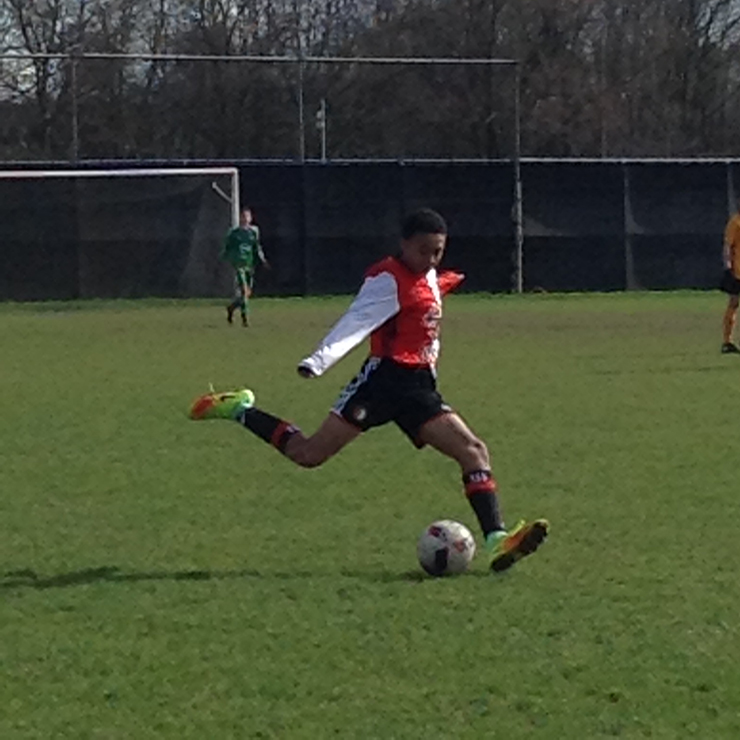
The Journey Ahead for Feyenoord Rotterdam
Feyenoord will return to the biggest stage in Europe this fall as the first team suits up for the UEFA Champions League. Opportunities arise during periods such as these with youth players inspired by the bright lights and unity of the club and its supporters.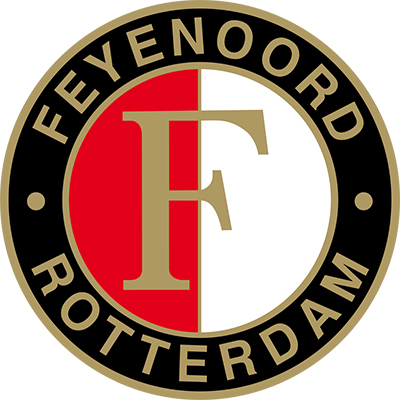
Omidiji is not taking his foot off the pedal now as he takes into account the various steps that have allowed him to reach where he is today.
“Playing for Feyenoord means that all the hard work put into me by coaches is paying off,” said Omidiji.
He cites Heat FC being of vast importance for his growth as a player, specifically during his final year in the United States.
“One of the best coaches I’ve ever had was Rafael Mitjans in Las Vegas,” said Omidiji. “He provided me with the freedom in my final year back home to play and grow. He explained my strengths and weaknesses and said we’re going to work on those weaknesses, and that’s what we did.”
Omidiji is not losing sight of the dedication it takes to reach the highest level as his parents have laid the groundwork for his growth as a person first.
“There are a lot of talented players, but my parents taught me that how hard you work is what determines how far you get,” said Omidiji. “So, it is very important to combine both.”
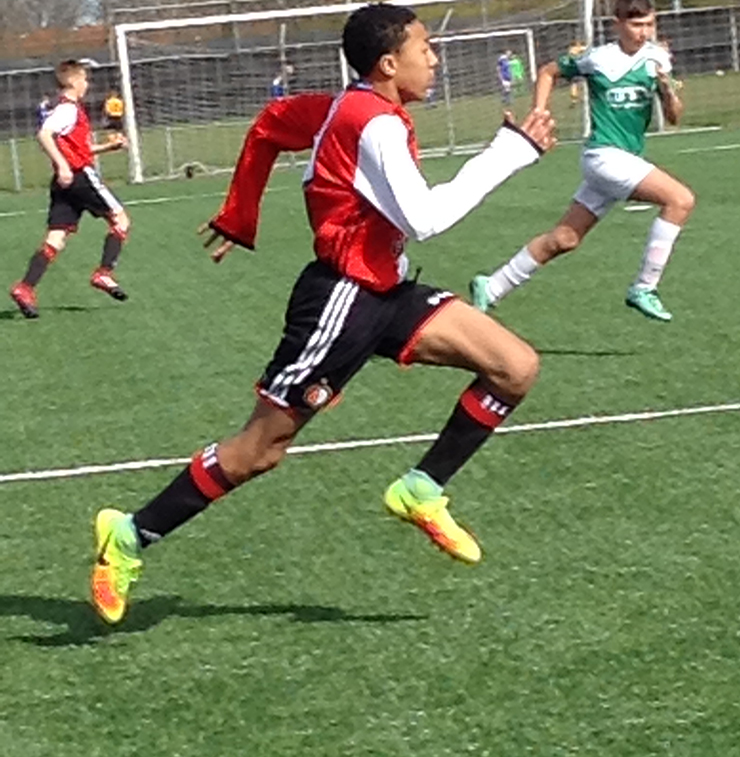
The young Nigerian-American is excited to take the next step of his football career with a notable club that remains dedicated to the growth of its youth as players and people. Omidiji recognizes the opportunity he has been given to suit up for a world-class academy as well as the reflection his presence provides U.S. Soccer.
“Playing at Feyenoord means I have an opportunity to learn at one of the best football schools in the world, and at the end of the day, I am a product of U.S. Soccer,” said Omidiji.
Stay tuned as we continue our coverage of Lateef Omidiji Jr. during his first season at Feyenoord Rotterdam. In related news, Sophia Omidiji – Lateef’s sister – has signed with Excelsior Rotterdam of the Eredivisie Vrouwen (Women). The 2017/18 campaign will be the first season Excelsior fields a women’s team. Chris Rael will provide first-person coverage of the Omidiji family as he moves to the Netherlands this fall.

